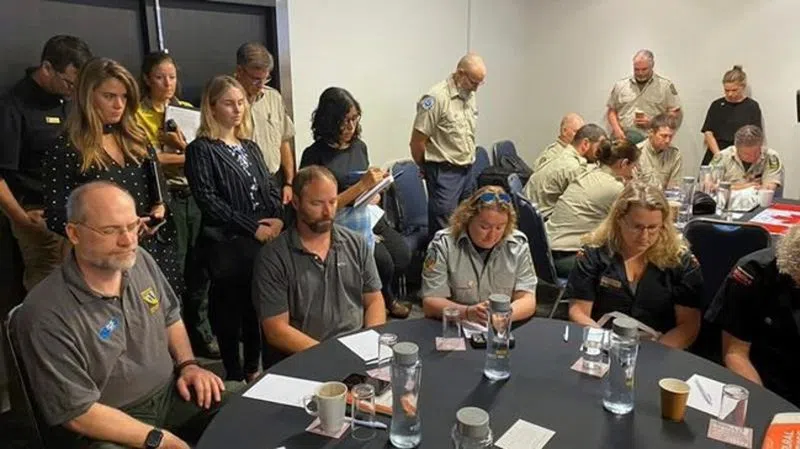
Australia works to recover bodies of 3 from air tanker crash
SYDNEY, Australia — The American tanker plane that crashed while fighting Australian wildfires had just dropped a load of retardant on a fire before it went down in New South Wales state, investigators said Friday.
The crash of the C-130 Hercules tanker Thursday killed Capt. Ian H. McBeth, 44, of Great Falls, Montana; First Officer Paul Clyde Hudson, 42, of Buckeye, Arizona; and Flight Engineer Rick A. DeMorgan Jr., 43, of Navarre, Florida, their employer, Canada-based Coulson Aviation, said in a statement.
The crash occurred during an unprecedented wildfire season that has left a large swath of destruction in Australia’s southeast.
Specialist investigators were sent to the crash site in the state’s Snowy Monaro region and a team was working to recover the victims’ bodies, Australian Transport Safety Bureau Chief Commissioner Greg Hood told reporters in the nearby town of Numeralla.
